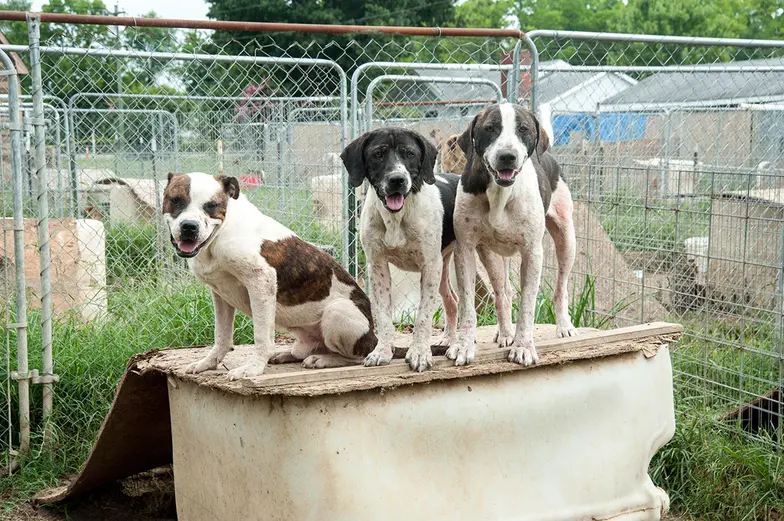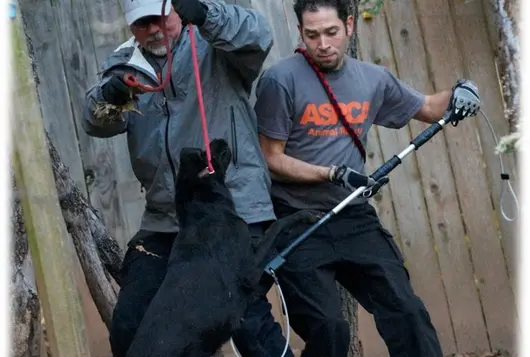Tips for Reporting Animal Cruelty

Your community views your shelter or rescue as an authority on animal welfare issues and looks to you for advice on reporting animal cruelty. Familiarizing yourself with your local laws will help you to support concerned citizens and protect animals from harm.
Police, whether state or local, are generally the principal law enforcement agency charged with investigating complaints of animal cruelty, animal fighting or any other crime relating to animals.
Some states also grant authority to animal control officers, peace officers or agents of humane societies to investigate cruelty complaints, execute search warrants, and arrest the suspects. Here’s a general overview of what people should keep in mind when reporting animal cruelty suspicions.
Report the Right Information
If possible, citizens wishing to make a cruelty complaint should be prepared to provide law enforcement with the following:
- A concise, written, factual statement of what they observed, giving dates and approximate times whenever possible.
- If it can be done without entering another person's property without their permission, they may wish to photograph the location, the animals and the surrounding area.
- The names and contact information for other people who have firsthand information about the alleged abusive situation or alleged animal fighting activity.
Keep Track of the Right Information
Individuals who suspect animal cruelty should keep detailed records of their contacts – including whom they spoke with, the date, and the content and outcome of each conversation. If sharing documentation, it is wise to retain a copy for your own records.
Know How to Be Credible
Make it clear to the officer that you are very interested in pursuing the case, and that you are willing to lend whatever assistance you can.
While law enforcement agencies take anonymous reports of serious crimes, including animal cruelty, they are more likely to pursue cases where credible witnesses are willing to be identified and, if necessary, testify in court about what they observed.
Know When to Follow Up
If after making a report you do not hear back from the officer assigned to the complaint within a reasonable time, you can make a polite follow-up call to inquire about the progress of the investigation. If, after reasonable efforts, it appears that no action has been taken on the complaint, you can consider contacting a supervisory officer or an appropriate local or state official to request follow-up.
Community members should keep in mind that most law enforcement agencies operate with limited personnel and resources and most of these agencies are doing their best to conduct timely and efficient investigations. Approaching officers with respect and patience, and extending the benefit of the doubt when appropriate, will often be more effective than filing premature complaints with their supervisors.
Understand Animal Cruelty Issues on TV and Film
This area of the law is complicated. Actual instances of cruelty for entertainment purposes may well constitute crimes. However, fictionalized depictions, even of despicable acts against animals, may be constitutionally protected as free speech.
Concerned viewers can do the following:
- Contact the network that aired the program, the sponsors of the program or the producers of the material in question.
- Reach out to the American Humane, Film & Television Union at (818) 501-0123. This unit monitors the use of live animals in movies and television as part of an agreement with the Alliance of Motion Picture and Television Producers and often enlists the aid of representatives from local humane societies or animal care and control agencies to monitor such use.
Understand Animal Cruelty Depictions on Websites
Federal law (18 U.S.C. § 48, the Animal Crush Video Prohibition Act of 2010) prohibits the creation, sale, and distribution of certain depictions of intentional animal cruelty, such as “animal crush videos,” where the underlying conduct is itself illegal.
To report online materials or websites that may display acts of actual cruelty to animals, concerned citizens should do the following:
- Contact the website host or sponsor. Major providers of Internet services have Terms of Service agreements that restrict depiction of objectionable material.
- If the material is in violation of federal law, it can be brought to the attention of federal authorities.
Understand Reporting in New York City
Citizens can report cruelty using one of the contacts listed here.
We have lots more on this subject:


